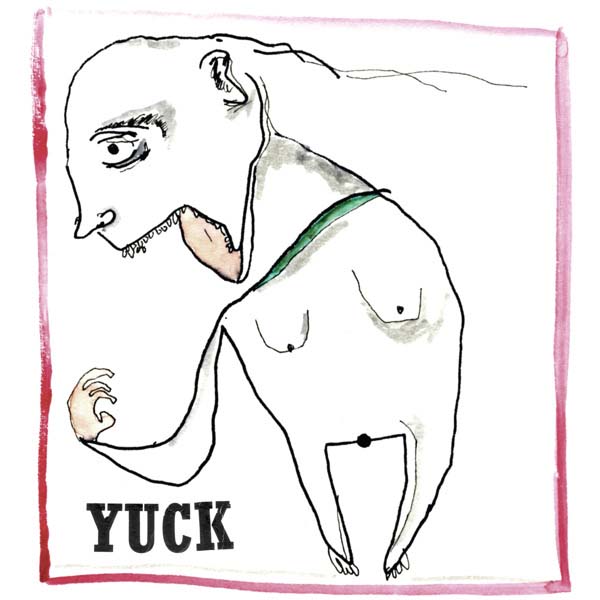Given that a recent trend in popular music has seen newer bands look to the past for their inspiration, delving into their parents’ record collections and mining those plentiful resources to come out with something to fuse with the musical trends of the day, it should come as no surprise that the fertile period of alt-rock in the 1990s is now being looked at and being used.
The 1990s were characterised by a fusion of 60s and 70s music with fuzz and distortion (completed by an unhealthy obsession with plaid and checks), while most of the upcoming bands in the 2000s were preoccupied with post-punk, punk and synths coupled with twitchy electronics. It’s a logical progression then, that bands are looking at the defining characteristics and successes of the 90s and adapting those for their own ends. On their debut, Yuck have done this perfectly.
The difference between a band now and a band then, is that using current musical trends probably won’t work, especially not in Yuck’s case. Yuck are more focused on melody, dynamics and most importantly; guitars, drums and bass. Electronics would not work in any way, shape or form. Instead, Yuck have drawn a parallel between the simple yet effective melodies of the 90s and the positive, energetic melodies of the British indie scene (think Los Campesinos! and Mystery Jets) they would’ve been exposed to. It’s this that makes a refreshing contrast to the sometimes intense dirge-like music. Take the opening one-two punch of “Get Away” and “The Wall:” through all the fuzz there’s not only one but two instantly memorable melodies; one played by guitar and the other on vocals. Both are evocative and simple, which is great for retention and thus, humming along. “Holing Out” combines the things mentioned above with a surf-rock rhythm throughout and opening salvo sounding like a dirty union of the Beach Boys with The Rolling Stones, while “Operation” sounds more like a triumphant rock song of the kind that British Sea Power have been churning out.
Yuck also display a softer and quieter side on the album, something that really allows the band’s musical dexterity to shine through. What’s also a good move is the way these tracks are interspersed throughout the album; Yuck has peaks and troughs like any great album should. “Shook Down” comes along nicely, almost devoid of any of Yuck’s usual fuzzy noise. “Suicide Policeman” is a downbeat acoustic number accompanied by brass instruments, while “Suck” and “Stutter” both compliment each other perfectly as consecutive tracks.
The final two tracks, however, are a completely different beast to the rest of the album. One gets the impression while listening to “Rose Gives A Lilly” that this is the calm before the storm; a brooding, slightly positive sounding instrumental that moves the album along in its latter stages. You may have already heard the final track, “Rubber,” as a pre-release song, but placed at the end of Yuck it sounds completely different. Its plodding rhythm and downbeat guitars lends the song a remorseful atmosphere; this isn’t dark or sombre, it’s melancholic. By the end of the 7 minutes there’s a feeling of being emotionally beaten into feeling sad.
Yes, it’s clearly obvious what Yuck’s main influences are; they’re placed very firmly on the band’s sleeve. But with sounds that tie the band to modern indie as much as alt-rock, Yuck have crafted something incredibly refreshing, and more importantly, good.

